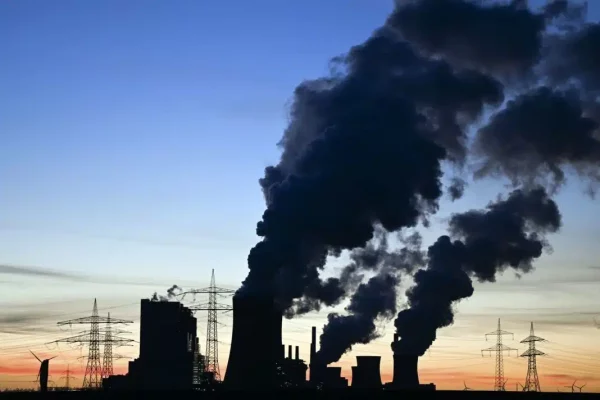Nairobi, 5 September 2023. CYNK, Africa’s first verifiable emissions reduction platform, has announced a landmark carbon forwards trade of over two million credits, at the Africa Climate Summit in Nairobi, Kenya. This represents the largest worldwide launch deal to date, representing over 2 million tonnes of CO2e.
CYNK is an African based end-to-end platform for the measurement, verification and sale of high-quality verifiable emissions reductions (VERs). CYNK is designed to enable funding for the full life cycle of projects which are answering the call to action on climate change and social impact. This milestone trade represents a proof of concept for a platform intent on bringing high quality VERs to market by building trust and transparency. Recently appointed CYNK CEO, Sudhu Arumugam said, “CYNK is a platform built using the best-in-class web3 solutions of the blockchain and decentralized finance, to enable climate projects from the Global South to interact directly with investors and buyers in the Global North, via a marketplace that is accessible to all. This will enable climate projects to become price makers rather than price takers, as they have historically been”.
Arumugam went on to say, “this trade of over 2 million forward carbon credits shows the trust being rebuilt in the high-quality segment of the voluntary carbon markets after a period of complete loss in confidence in wider markets. It also showcases the potential for climate projects and sovereign nations in the Global South, which are net long carbon, to monetize this fast-growing asset class.”
The challenges of current climate markets
In the recent past, voluntary carbon markets have been tainted by misrepresentations around standardisation and misestimations of credits. These challenges are owing to a historic lack of transparency that has made it challenging to obtain underlying data, monitor project progress, and assess the real impact of carbon offset projects on the ground.
At the same time, there is a significant financing gap for climate action with Africa alone needing approximately $500bn by 2030 to stem climate change and a global projected need of trillions of Dollars to reach the goals set by the Paris Agreement. There is a pressing need to unlock the financing gap for climate action as we embark on the great energy transition into 2050.
Building climate markets for the future
CYNK has been developed in response to these challenges. As a leading innovator in climate finance, also known as Regenerative Finance (ReFi), CYNK offers key technology solutions for the creation of high-quality ESG assets and financial marketplace solutions to accelerate financing for climate action with social impact at the core.
Ranging from Trades, CYNK’s decentralised exchange built for the trading of climate assets to enable global investor participation into liquid and transparent climate markets, and Launchpad, offering financing for high quality projects via Initial Green Offerings, to Carbonport which provides an over the counter (OTC) crossing platform to bring significant OTC liquidity to market, CYNK provides a range of solutions for the full life cycle of projects.
The CYNK platform has been designed in Africa by teams with significant experience in projects on the ground. CYNK further helps gain trust for projects post financing by ensuring that these projects’ progress, both from a carbon and social impact perspective, is monitored in real time using the latest technologies.
Tamuwa, the first and one of CYNK’s major partners, has established itself as the leading renewable biomass fuels producer in East Africa, specializing in technology which upcycles agri-waste, which would otherwise be left to decompose and emit methane, into high-quality renewable biomass fuels. Tamuwa provides renewable fuels to key industries across the region helping to prevent deforestation. Tamuwa’s emissions credits are in the process of attaining Gold Standard certification and will be traceable and tradable on CYNK.
Nils Razmilovic, CEO at Tamuwa said, “Tamuwa is a powerful use case of what is possible when transparency and quality is built into each step of the carbon credit value chain. We have witnessed the benefits of a huge level of control in data collection and an immutable audit trail.” He added, “Our landmark trade illustrates the value of carbon credits as an asset class for the Global South which can create climate action and benefits for local communities.”
Through establishing and clarifying the value of high-quality carbon credits in Africa and tracking the impact on the ground through a clear and transparent platform connecting projects to climate markets, CYNK has established the power and potential of carbon trading built for the Global South.



